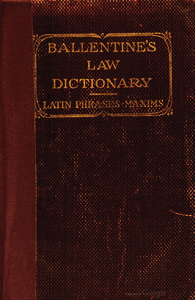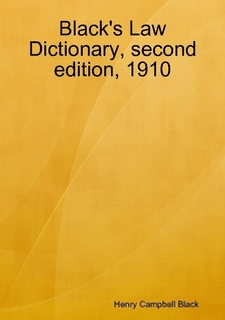A right of presentation to a church or benefice. See 2 Bl. Comm. 21.
Definition of Advowson
-
Ballentine's Law Dictionary
-
Black's Law Dictionary: 2nd Edition
In English ecclesiastical law. The right of presentation to a church or ecclesiastical benefice; fhe right of presenting a fit person to the bishop, to be by him admitted and instituted to a certain benefice within the diocese, which has become vacant 2 BL Comm. 21; Co. Litt. 119b, 120a. The person enjoying this right is called the "patron" (pairons) of the church, and was formerly termed "advocatus," the advocate or defender or in English, "advowee." Id.; 1 Crabb, Real Prop, p. 129, § 117. Advowsons are of the following several kinds, via.:
—Advowson appendant. An advowson annexed to a manor, and passing with it, as incident or appendant to it, by a grant of the manor only, without adding any other words. 2 Bl. Comm. 22; Co.. Litt. 120, 121; 1 Crabb, Real Prop. p. 130, § 118.
—Advowson collative. Where the bishop happens himself to be the patron, in which case (presentation being impossible, or unnecessary) he does by one act, which is termed "collation," or conferring the benefice, all that is usually done by the separate acts of presentation and institution. 2 Bl. Comm. 22, 23; 1 Crabb, Real Prop. p. 13i, § 119.
—Advowson donative. Where the patron has the right to put his clerk in possession by his mere gift, or deed of donation, without any presentation to the bishop, or institution by him. 2 Bl. Comm. 23; 1 Crabb, Real Prop. p. 131, § 119.
—Advowson in gross. An advowson separated from the manor, and annexed to the person. 2 Bl. Comm. 22; Co.. Litt. 120; 1 Crabb, Real Prop. p. 130, § 118; 3 Steph. Comm. 116.
—Advowson presenta-tive. The usual kind of advowson, where the patron has the right of presentation to the bishop, or ordinary, and moreover to demand of him to institute his clerk, if he finds him canonically qualified. 2 Bl. Comm. 22; 1 Crabb, Real Prop. p. 131, § 119.

